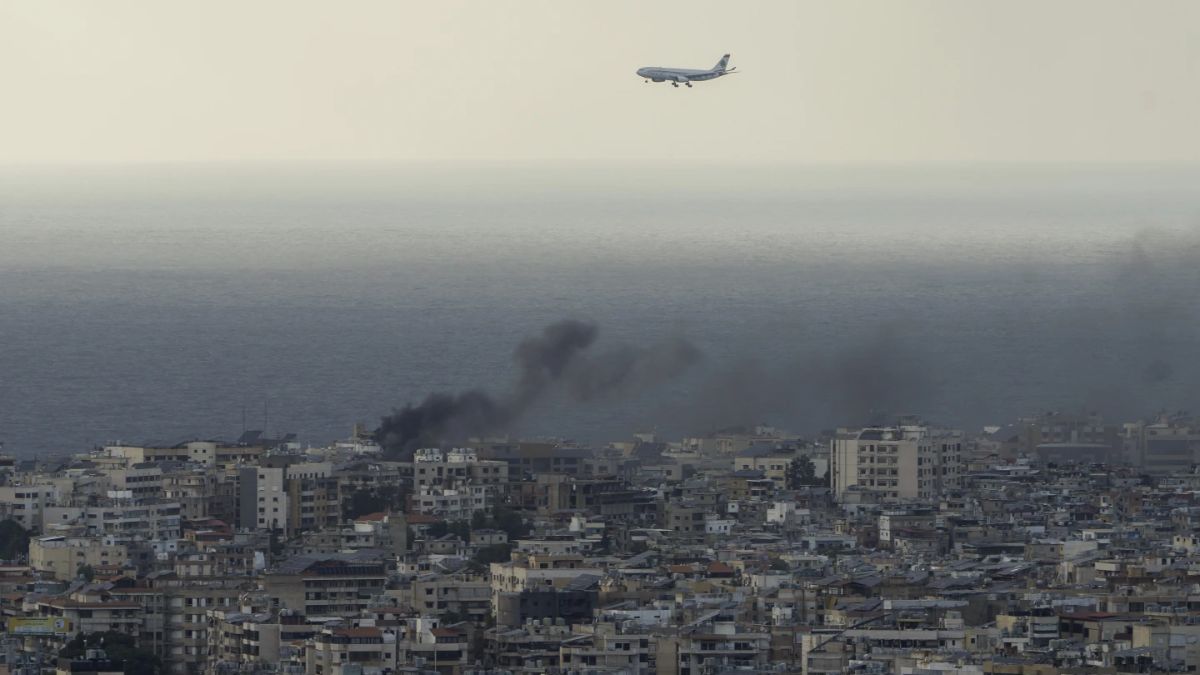Look up in Beiruit’s suburbs.
As the heavy smoke after Israel’s bombs go off clears, you will see Lebanon’s national air carrier in the sky.
The Middle East Airlines (MEA) is the only commercial airline still operating in the conflict-ridden region.
Unlike the Israel and Hezbollah conflict in 2006, Lebanon’s commercial airport has not been targeted.
Let’s take a closer look at the MEA:
How is the MEA managing?
The airline has received assurances that Israel won’t target its planes or the airport as long as they are used solely for civilian purposes, Captain Mohammed Aziz, adviser to MEA chairman Mohamad El-Hout, told The Associated Press.
He also stated that the airline carries out risk assessments each day to determine the safety aspect of flying.
“As long as you see us operating, it means our threat assessment says that we can operate,” Aziz said. “We will never jeopardise the life of anyone.”
Speaking of the dramatic images of jets landing in risky circumstances, Aziz asserted that most of such images making rounds on social media are AI-generated and not real. He added that the clouds of thick black smoke that appear in most news footage occur away from the airport.
Still, some strikes have landed too close for comfort. On Monday night, one hit the coastal area of Ouzai, about 200 metres (650 feet) from one of the runways. There were no planes in the area at the time, reported AP.
What is the frequency of the flights?
Ever since the escalation began in the region, many countries regularly charter extra commercial flights to take their citizens out of the conflict zone. Other flights have carried Lebanese citizens to nearby destinations like Turkey and Cyprus to wait out the conflict.
Speaking to AP about flight frequency, Aziz said, “The number of daily MEA flights ranges from 32 to 40 — not much below the usual number for this time of year.” The only difference is that now the flights usually depart Beirut full and return two-thirds or three-quarters empty.
While many Lebanese have fled, others continue to fly in and out for business or family reasons.
Elie Obeid, a business consultant, was scheduled to fly to Brussels this month for a seminar. After his original flight on Turkish Airlines was cancelled, he booked himself on MEA.
As his return flight was landing Saturday, heavy airstrikes were underway in the surrounding area. Onboard, Obeid was unaware of what was happening until the plane landed and he opened his phone to a barrage of messages.
“I do appreciate the fact that they are still flying since that’s our only connection with the outer world currently,” he said. “But at the same time, it is very risky. We should have been told that strikes were happening, and maybe they could have told the pilot to request to land in Cyprus for a while until the strikes ended.”
What do experts say about the situation?
A US-based former airline pilot, John Cox, thinks operating in a war zone is a potential risk to the lives of the passengers. Speaking to AP, Cox said, “I’m not sure that I want to fly into an area of open conflict like that with passengers on board.”
“When there’s a potential threat, it’s the captain’s call whether or not to proceed, and it’s not unusual for passengers to be left in the dark,” he further said.
“When you’re in an area with ongoing military operations there’s an awful lot of variables,” he said. “Even just keeping the aeroplanes … so that they’re not in the same airspace at the same time, that becomes very difficult.”
Aziz said the airline is in ‘continuous coordination’ with the Lebanese government and security agencies and attempts to mitigate the risk by spacing out flights so the airport is not too crowded at any given time, reported AP. About 20 per cent of its fleet is parked outside of Lebanon to reduce potential damage.
How does MEA fend off GPS jamming?
The carrier has taken measures to fend off frequent GPS jamming carried out by Israel. These jammers disrupt civilian navigation technology as well.
Other airlines have different considerations, Aziz said. Their trips to Lebanon might be “one flight out of 200 or 300 flights per day, so spending two or three hours a day just to make a risk assessment for one flight is a waste of time for them,” he said.
“But for us, it’s a necessity because if we don’t do it we’ll stop operation completely.” He added, “It’s our duty, of course, to maintain this link between Lebanon and the outside world.”
Travellers deal with bombardment near airport
Marie-Jose Daoud, editor-in-chief of an online journalism platform, flew to Cyprus with her parents a few days after the massive strike in Beirut’s southern suburbs that killed Hezbollah leader Hassan Nasrallah.
As they were waiting for their flight, she saw on the news that the Israeli military had issued evacuation notices for two areas close to the airport. Soon after, she heard the muffled sounds of airstrikes through the airport’s soundproof walls.
As the plane took off, the crew and most of the passengers remained calm. One man pointed out the window to show his young son the smoke rising. The plane made it safely to Cyprus.
Daoud said her parents want to return home despite the risks, so she is travelling back with them in a few days. She plans to leave again soon after, but she knows she can “come back at a day’s notice” if her family needs her.
“As long as the airport is open, I know that (MEA) are going to be flying,” she said.
With inputs from AP
)